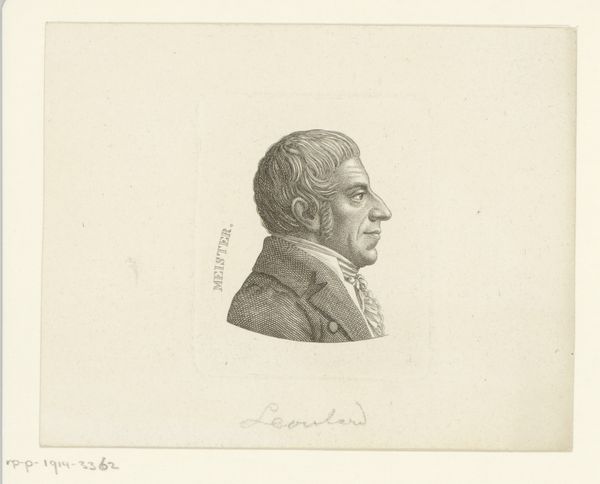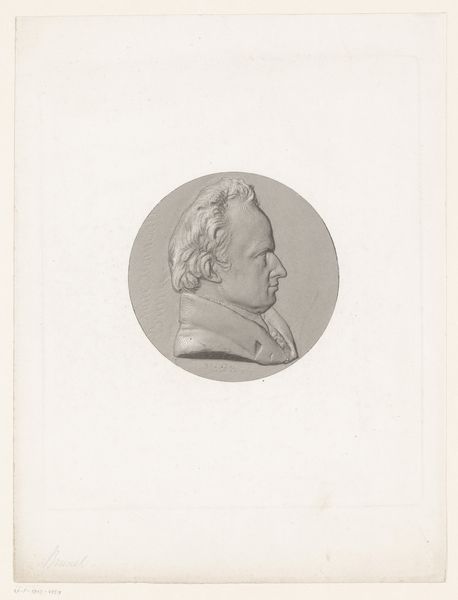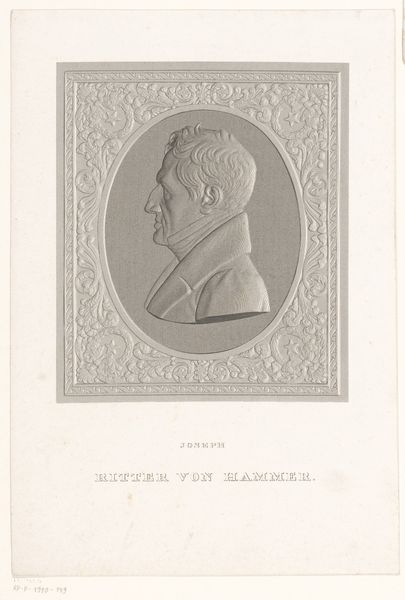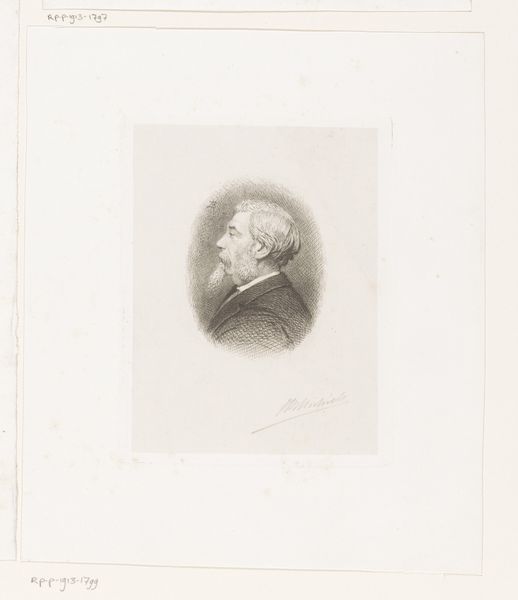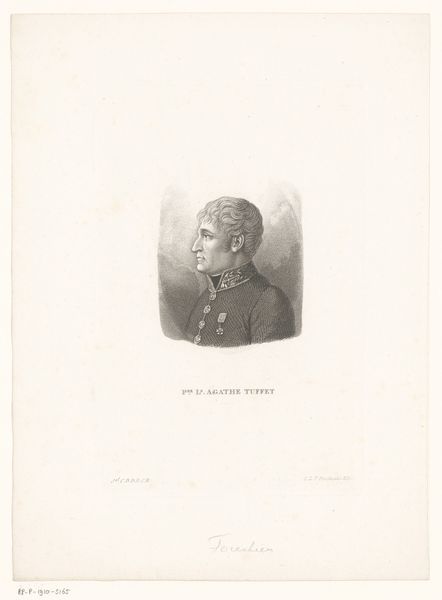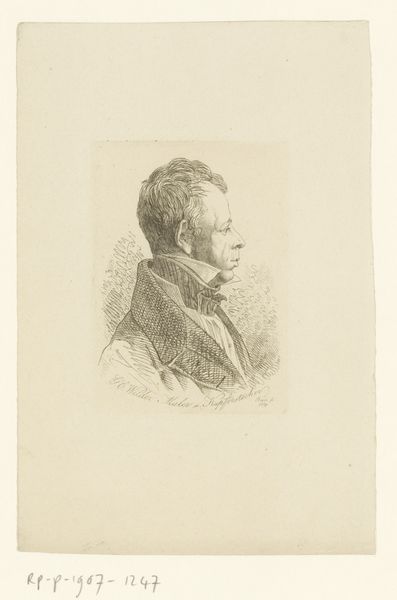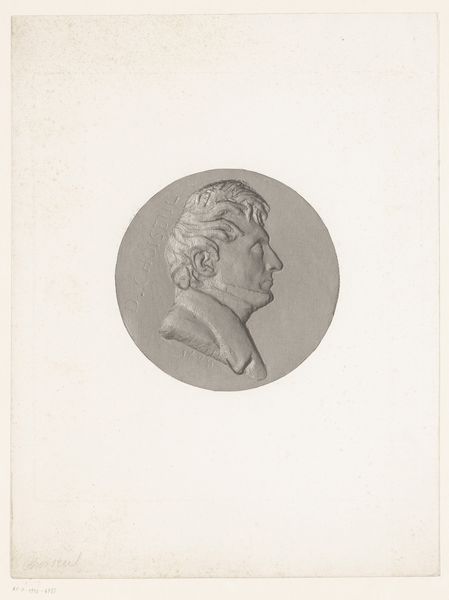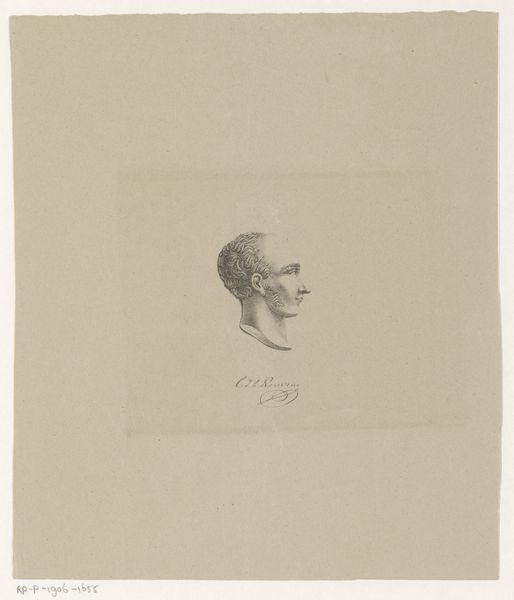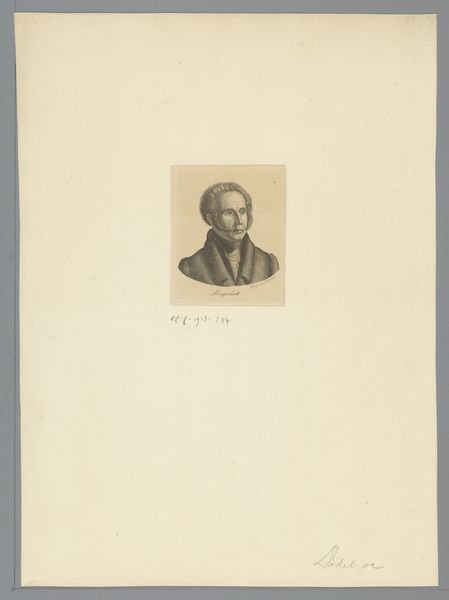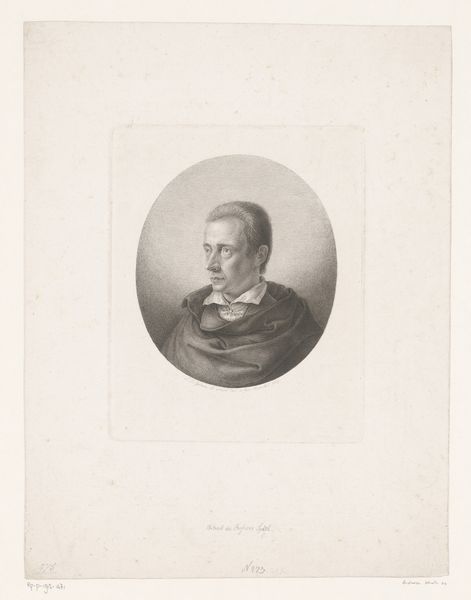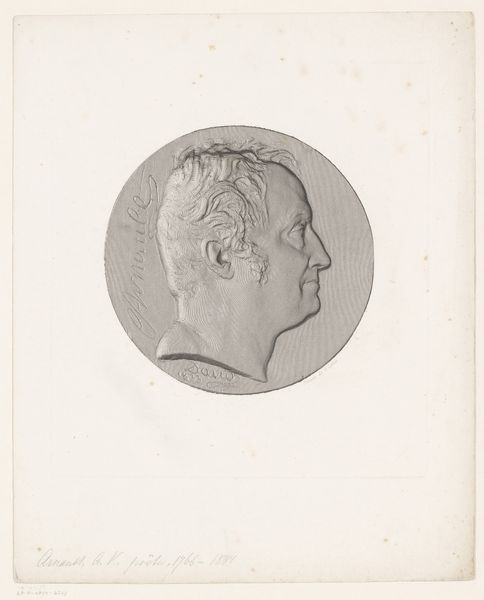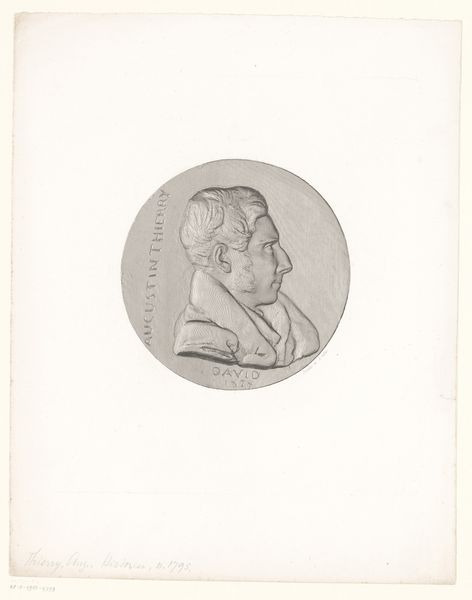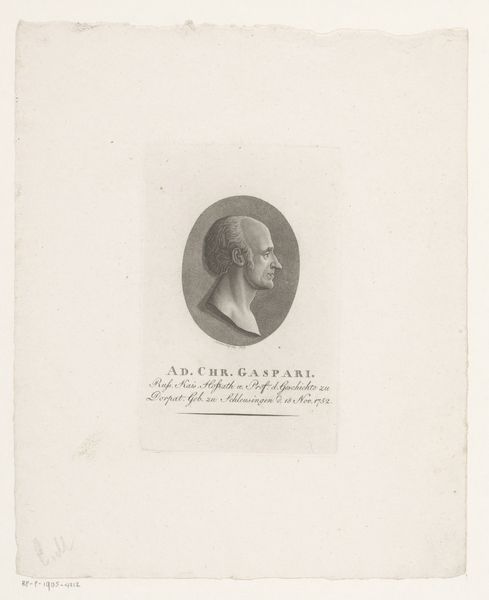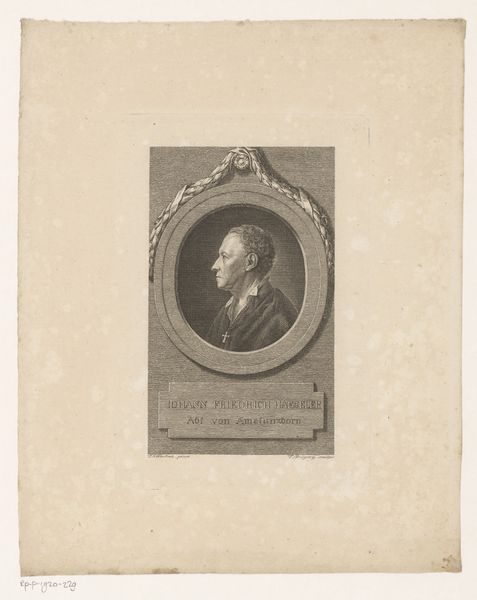
engraving
#
portrait
#
neoclacissism
#
old engraving style
#
engraving
#
realism
Dimensions: height 75 mm, width 62 mm
Copyright: Rijks Museum: Open Domain
This engraving of Georg Jacob Friedrich Meister was made by Ernst Ludwig Riepenhausen. It gives us a window into the social and cultural values of early 19th-century Germany. The profile portrait was a common way of representing individuals, drawing on classical traditions and ideals. The institutional and cultural elite wanted to associate themselves with the glories of ancient Greece and Rome. The clean lines and precise details suggest a desire for order and rationality, reflecting Enlightenment values. But the choice of the profile view, rather than a full frontal portrait, may also be an allusion to the increasing emphasis on the individual and the inner life characteristic of the Romantic period. To understand this image more fully, we would need to know more about the sitter, the artist, and the social context in which it was made. A social history of this image would require research into the relevant archives. What was the relationship between artist and sitter, for example? And how did they each participate in the cultural institutions of their time?
Comments
No comments
Be the first to comment and join the conversation on the ultimate creative platform.
